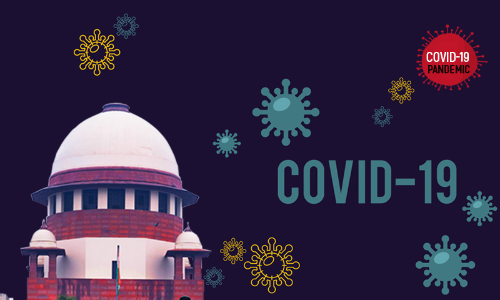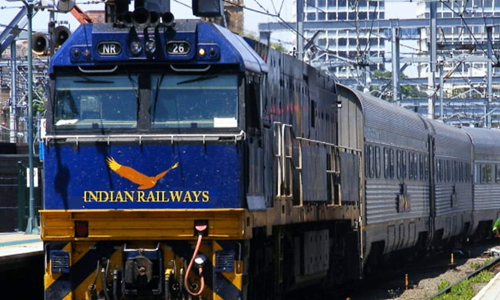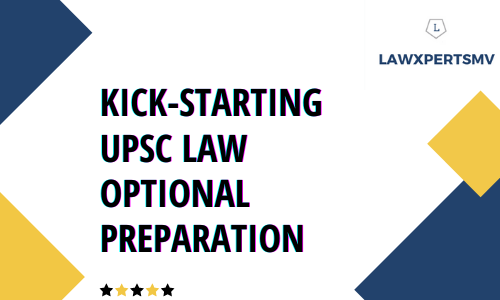Law Firm Articles
What Is Inadmissibility According To Canadian Immigration Law?
Many people come to the foreign land with the hope of better living lifestyle. But in order to fulfill someone's dreams, it is mandatory to note that whatever documentation and process one has to follow should be legit and authentic before coming into another country. One needs to know the full ins and outs before exploring internationally and for that one need to have a requisite knowledge of how he has to apply and to whom he has to apply and in what manner? Everyone wants to immigrate...
Critical Analysis Of The Virtual Courtrooms And The Access To Justice During The Coronavirus Pandemic
Due to the outbreak of the novel coronavirus and the declaration of lockdown in India from March 2020, people have been forced to stay at home and practice social distancing. In the wake of the situation, the Supreme Court bench on 6th April 2020 issued the guidelines 'In Re: Guidelines for Court Functioning Through Video Conferencing During COVID-19 Pandemic' for reducing the number of people in the court by restricting entry and maintaining social distancing, while ensuring other...
Timelines For The Making Of An Arbitral Award In View Of The Arbitration And Conciliation (Amendment) Act, 2019 – The Continuing Saga Of Retrospective Applicability
The Arbitration and Conciliation (Amendment) Act, 2019 ('2019 Amendment Act') came into force on 30.08.2019.[1] Since then, it has already been the subject of judicial scrutiny/criticism by the Supreme Court[2] given its ignorance of the judgment in BCCI v Kochi Cricket Pvt Ltd[3] ('BCCI') which had finally put to rest the debate on the question of the retrospective application of the Arbitration and Conciliation (Amendment) Act, 2015 ('2015 Amendment Act'). Unfortunately, it now...
Canadian Lawyers Discuss What Are The Best Ways To Get PR In Canada
Everyone has the right to grow and test his/her intellect by testing one's limits and this can only be possible when people get the opportunity to explore not only locally but internationally as well. Many people come to the foreign land with the hope of better living lifestyle. But in order to fulfill someone's dreams it is mandatory to note that whatever documentation and process one has to follow should be legit and authentic before coming into another country. One needs to know the...
Canadian Immigration Lawyers Explain How To Protect Yourself From Canada Immigration Frauds
There seems to be a lot of competition these days between the immigration companies. But who are the legit ones and who are the fake ones, is very difficult to bifurcate these days. The competition of maintaining the track record of how many have been sent through a particular immigration company and at what circumstances has led to a fish market in this immigration sector that nobody bothers to the life of the client they wish to settle in. What matters the most is money and the number of...
Personal Guarantor Insolvency Provisions Of IBC Under Challenge
By a gazette notification dated 15 November 2019, the Government of India had brought into effect Part III of the Insolvency and Bankruptcy Code, 2016 (IBC) (save and except provisions dealing with the fresh start process mainly set out in Chapter III) dealing with the insolvency and bankruptcy of individuals and partnership firms in so far as it is applicable to personal guarantors of a corporate debtor. We have recently seen a lot of discussion surrounding these provisions in several...
Concept Of Commercial Wisdom And Its Legal Implications
The jurisprudential essence of the supremacy of commercial wisdom of Committee of Creditors has been reaffirmed time and again by the Supreme Court and the Adjudicating Authorities. The concept is brilliantly amplified from K. Sashidhar v. Indian Overseas Bank & Ors. (2019 SCC OnLine SC 257) to Committee of Creditors of Essar Steel India Limited v. Satish Kumar Gupta & Ors. (2019(16)SCALE319). The Hon'ble National Company Law Appellate Tribunal, New Delhi in Sunil S. Kakkad v. ...
Consumer Protection In The Digital Age
We, and every generation before us, have always put great import in the promise of an unquantifiable yet unanimously glorious future. The right to access the internet is now at par with other fundamental rights across the globe, but just as the internet is steadily becoming our most bankable future, the issue of access has shifted from the internet to information, ubiquitous yet closely held. The new bastions of power are the ones with information, or rather, data, as a staggering amount...
Resolution Plan Under IBC: An Albatross Around The Resolution Applicant's Neck
The Insolvency and Bankruptcy Code, 2016 ("the Code") aims to resolve the woes of stressed businesses ("Corporate Debtors") by putting them through a corporate insolvency resolution process ("CIRP") and transferring them as 'going concerns' to persons/entities ("Resolution Applicants") willing to take over their management and assets, and service their debts. The CIRP is seen as a more beneficial alternative to liquidation, as a going concern is likely to fetch a higher value for the...
Passenger Train Operations || Indian Railways' Tryst With PPP
"The Project for Private Participation in Passenger Train Operations will bring in a paradigm shift in passenger experience by significantly enhancing the quality of service while reducing transit time and supply-demand deficit through the introduction of modern technology rolling stock. The project will augment the availability of transportation services for the public." - Press Note, 2nd Pre-Bid Conference (August 12, 2020), Ministry of Railways, Government of India
How To Kick-Start Your UPSC Law Optional Preparation
Choosing the right optional subject is one of the crucial factor which determines whether you are in the final list of UPSC rank list or not. Law Optional is not a cup of tea for everyone unless one is really interested in it. But if you are law graduate and if you are choosing a non-law optional subject for UPSC, then your chances of success in the UPSC will decrease. Such a decision is not reasonable after memorizing tons of principles and case law in your graduation. Then, why some...
Keeping Securities Mandatorily In Dematerialised Form – Applicability To Companies
The Ministry of Corporate Affairs (MCA) vide the Companies (Prospectus and Allotment of Securities) Third Amendment Rules, 2018 dated September 10, 2018 inserted a new Rule 9A which came into effect from October 02, 2018 onwards. As per the said new Rule 9A, every unlisted public company is required to issue its securities only in dematerialised form and take all necessary actions to facilitate dematerialisation of all its existing securities in accordance with the provisions of the...













